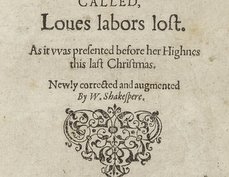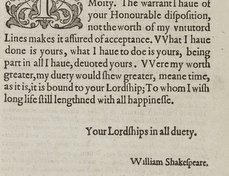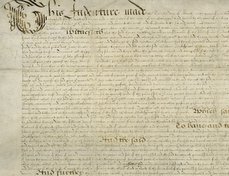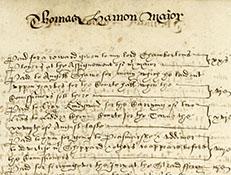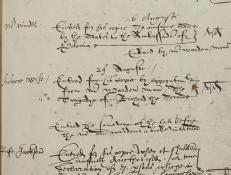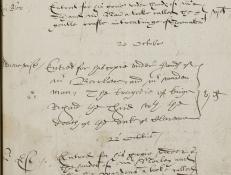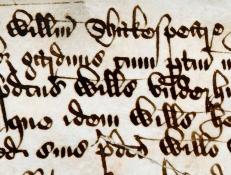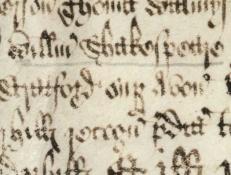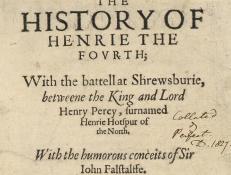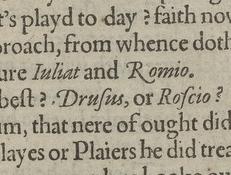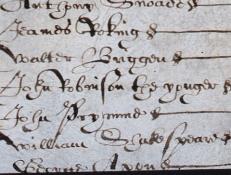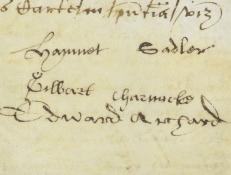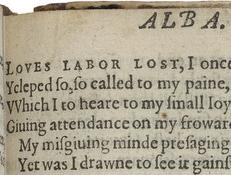Shakespeare Documented is still growing! Currently, two thirds of the descriptions and 98% of the images are available in the resource. Descriptive text will continue to be added, updated and expanded. Visit our About page to learn more about the project scope.
EXPLORE THE DOCUMENTS BY CATEGORY
SHAKESPEARE DOCUMENTED IS STILL GROWING
Descriptive content and transcriptions will continue to be added, updated and expanded. Check back for regular updates!
Filter the documents by tag(s)
ca. August 27, 1597
This document, part of the Rye Chamberlain’s Accounts, includes an August 1597 entry for a payment of 20 shillings to Shakespeare’s company, the Lord Chamberlain’s Men.
August 29, 1597
Richard II was entered into Liber C of the Stationers' Company on August 29, 1597. The title as entered reads "The Tragedye of Richard the Second".
October 20, 1597
Richard III was entered into Liber C of the Stationers' Company on October 20, 1597.
May 2-9, 1597
In May 1597, the freehold title to New Place passed from William Underhill to William Shakespeare. This would normally have been recorded in a formal deed of conveyance, signed by both parties.
May 4, 1597
For further details about the 1597 exemplification, see the general essay for Shakespeare's purchase of New Place.
1598
This edition of Henry IV Part 1 is the earliest printed version of the play to survive fully intact.
1598
SHAKESPEARE DOCUMENTED IS STILL GROWING! Descriptive content and transcriptions will continue to be added, updated and expanded. Check back for regular updates!
October 1, 1598
Lay subsidies were a type of tax based on personal wealth. In London, the collection of subsidies was managed at the local level of ward and parish.
July 18, 1598
In the summer of 1598, Thomas Blackford of Butlers Marston sold a house on the north side of Sheep Street, Stratford-upon-Avon, to Daniel Smith. The deed recording the sale, shown here, was drawn up on July 18.
1598
The first description of a performance of Love’s Labor’s Lost appears in a sonnet sequence by Robert Tofte printed in 1598, the same year the play was first published.

